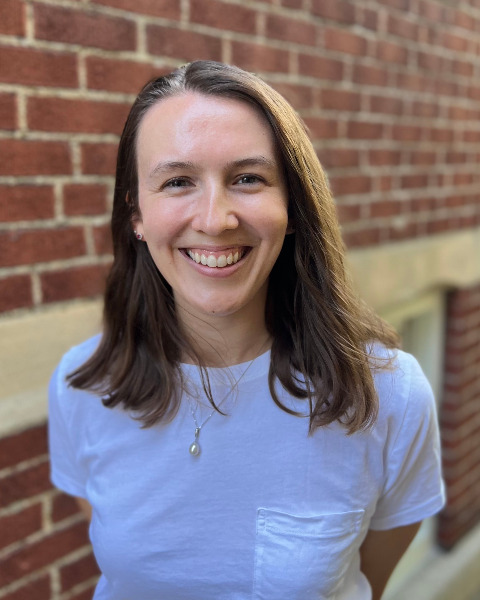Organizational Learning & Evaluation Capacity Building
Creative Practices to (Re)Examine the Stories We Tell Ourselves
-

Chantal Hoff, MPH (she/her/hers)
Evaluation Consultant
MXM Research Group
Boston, Massachusetts, United States -
KB
Kayla Benitez Alvarez, MA
Research and Evaluation Associate
MXM Research Group, United States
Presenter(s)
Location: White River Ballroom I
Abstract Information: The stories that we tell ourselves, about ourselves, are not independent of the stories we tell through our evaluations. Our backgrounds, identities, training, and experiences affect how we tell the stories of our evaluations and the communities we serve. But how many of us were taught to acknowledge, reflect upon, and incorporate our stories into our professional practice? Have we traced our data lineages, becoming aware of how our positionality shows up in our work, whether implicitly or explicitly? In the absence of intentionality, are we defaulting back to linear narratives of our lives, shaped for objectivity and neutrality? Which stories are retained and which ones are erased? Imagination and creative practice provide opportunities for us to (re)engage with our stories and to acknowledge how “neutrality” and erasure show up in our storytelling. Regular creative practice allows us to be in regular communication with ourselves - strengthening our ability to connect with our embodied, nonlinear and nonverbal ways of knowing and opening us up to exploring and valuing these ways of knowing in our evaluations. By creatively re-examining how we tell our own stories, we can shift the way we tell stories in our evaluations. In this workshop, we will lead participants through interactive narrative and visual storytelling exercises to (re)examine the stories we tell ourselves and the impacts they have on our evaluations. Participants will leave with a greater awareness of how the way they tell their own stories affects how they story evaluation, as well as tangible strategies for incorporating creative practices into ongoing reflective practice and evaluation storytelling.
Relevance Statement: Creative practices build skills and competencies relevant for practicing evaluation that centers equity and social justice; they also help us explore how the stories we tell ourselves impact the stories we tell through our evaluations. This workshop will be modeled in the style of a reflective practice, a model for continuous learning that encourages individuals to identify, acknowledge, and reflect upon how the assumptions and beliefs we hold shape our thinking and behaviors. This is a highly relevant, even essential, skill for researchers and evaluators, who may often be brought into projects to provide “objective,” “neutral” or “outside” perspectives to evaluations, but who are ultimately human and thus deeply impacted by our own individual experiences and stories. These individual stories and experiences ultimately impact how we show up to do evaluation work. Creating a space for evaluators to re-examine how the stories we tell ourselves shape our personal and professional lives is thus critical to addressing the conference’s key theme of how story fuels evaluation. In addition, creative practices provide a unique opportunity to explore how our personal stories fuel evaluation: 1. In Emergent Strategy, adrienne marie brown describes two elements that are highly relevant for evaluation storytelling: fractals (the relationships between small and large) and interdependence and decentralization (who we are and how we share). Creative practices provide us with limitless opportunities to explore fractals, relating our individual stories/the stories we tell ourselves to the stories of our clients and communities. Creative practices also expand the ways in which we can share our stories with each other and make connections to how our “individual” stories are actually interdependent with those around us. 2. Creative practices also provide an expanded way of exploring our own positionality. Positionality is a response to claims of objectivity, noting that knowledge is relational, contextual, and situated, in response to culture and context (Alcoff, 1988). Practicing creativity and using our imaginations provides opportunities to identify and acknowledge our own assumptions, to situate ourselves and our experiences within the world, and re-examine our beliefs and patterns of behavior. 3. In particular, one strength of creative and arts-based practices is that by expanding beyond verbal or narrative modalities, individuals have opportunities to surface assumptions, themes and beliefs creatively that may be difficult or uncomfortable to articulate in words (Leavy, 2020). As Tricia Hersey writes in Rest is Resistance, “Poetry, like rest, comes from the silent place of our listening. Poetry, like rest, opens up corners of the unknown while guiding effortlessly. Poetry makes sense of meaning and allows us to put things back together that have been torn apart.” We hope that bringing our messy, imperfect, artistic selves through these exercises will help others feel more comfortable understanding how the stories they tell themselves ultimately impact their work, and that by uncovering these together they will have the skills and courage to do the same when they return to their lives, their teams, and their communities.
